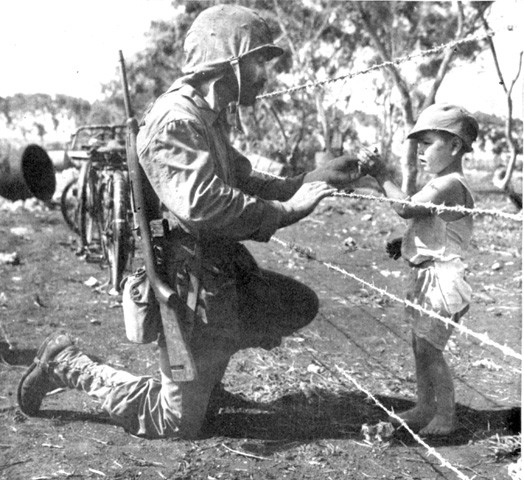Feb. 19 marked the 75th anniversary of the signing of Executive Order 9066, which lead to the internment of thousands of Japanese-Americans living along the West Coast of the United States during World War II.
The Tucson Desert Art Museum held a “Day of Remembrance” featuring guest speakers, as well as an exhibit featuring photographs by Paul Kitagaki, Jr.
Among the guest speakers was Susie Matsunaga, whose mother was held in an internment camp for a number of years. She described what conditions were like for her mother and the others who were held in the camps.
“The barracks were less than minimal,” said Matsunaga. “It was a makeshift room that was put up real quick, families had to live in one room. It didn’t matter how big the family was and they had as many single beds in that room so that they could live in it.”
Matsunaga said that her mother’s experience inside the internment camps helped Americanize her and many others who were also interned. Their experience inside the camps was the first time many of them became exposed to American food. While there were some elements of Japanese culture present at the camps, it was a far cry from the culture they were able to express at home.
“It was wrong, it was an injustice and it affected a lot of lives and it actually handicapped a lot of people.” said Terry Matsunaga, husband of Susie Matsunaga.
Many innocent lives were changed when Order 9066 came into effect. The order forced many people to leave their jobs and homes, and some even had to drop out of school or were expelled.
“My father started at a community college, he had to withdraw after his first semester because he was taken to camp,” Terry said.

Although all those who were placed in internment camps were eventually released, many had a difficult time adapting back to the life they once had before the camps.
RELATED: UA Museum of Art exhibition looks at the U.S.-Mexico border
“My father was a little bit inhibited, he never liked to socialize outside of his own circle of friends who happened to be more of his own ethnic origin,” he said.
For those who had originally attended college prior to being held in internment camps, returning to college or university simply wasn’t an option. They had lost years of their lives living in the camps and those who did return to school found their task much more difficult in the years after the war.
“What I found was that for some and for many it was a very difficult transition to come back to society,” Terry said.
For him, the photos presented in the exhibition ultimately bring forth a much more pressing question.
“What would life have been like had they not been incarcerated for three and a half years?” he asked.
Some were able to find success once they were released from the camps and despite what had happened many tried to make the best out of a bad situation.

“It made them that much more determined to make things better for themselves and especially for their children,” Susie said.
There were also others at the event who saw a reflection of what happened a little more than 70 years ago in the current political environment.
“There are things happening today where people are using other people’s religion, their ethnicity, their sexual orientation or their sex as reasons to discriminate,” said Dick Keil, who attended the event.
Keil said that it is important for young people to attend events such as the “Day of Remembrance” so that they can understand and learn from the past.
“It gives us an opportunity to learn from other people’s successes and mistakes,” he said.
Kail also stated that the same social prejudices and injustices, which led to the internment of thousands of Japanese-Americans in the 1940s, are still active today against other groups of people. He said that putting people in jail for their race or ethnicity is frightening.
“If we don’t learn [from the past] we are being unfair or untrue to our own country’s values,” he said.
RELATED: UA celebrates birthday of photographer Ansel Adams
After all that has happened, people are still willing to forgive the events of the past. The idea of forgiveness was echoed in both those who spoke and attended the event.
“They are able to take the high road and forgive as long as it never happens again,” Terry Matsunaga said.
Follow Victor Herrera on Twitter.









